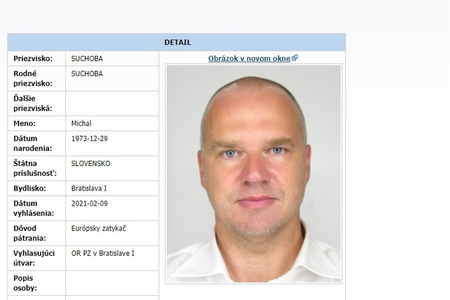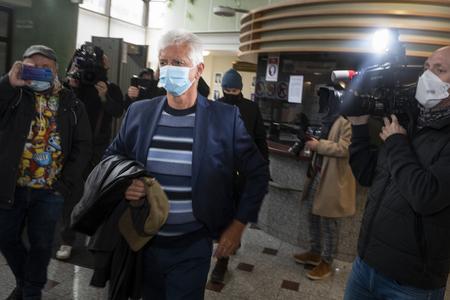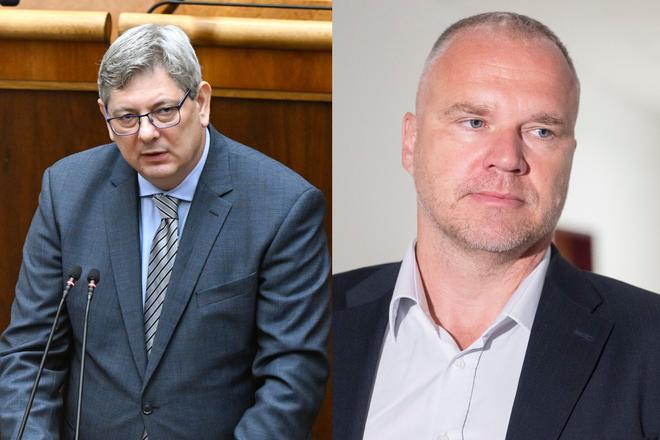Slovakia’s justice minister has launched a rare legal challenge against a plea deal struck in a sensitive corruption case, raising concerns about political interference in the judiciary and potentially upending a major investigation into alleged police corruption during past governments.
Justice Minister Boris Susko, a member of the ruling Smer party, is attempting to overturn a court-approved agreement from May 2023 between prosecutors and businessman Michal Suchoba, a key cooperating witness in multiple corruption cases, according to the Slovak daily Sme. Under the deal, Suchoba admitted to bribing a senior tax investigator with €70,000 in 2018 and received a €90,000 fine in lieu of jail time.
The challenge is based on a controversial amendment to Slovakia’s criminal code, pushed through parliament in early 2024 by Smer MP and former police chief Tibor Gašpar. The new rule allows the justice minister to retroactively contest finalised plea bargains – an unprecedented move in Slovak law. At the time of its passage, critics warned the measure could be used to undermine cooperation with prosecutors in politically sensitive cases.
In his petition to the Supreme Court, Susko argues that the facts surrounding the alleged bribe are too vague and abstract to justify a conviction. He claims there is insufficient evidence that Suchoba intentionally offered an illegal payment and questions whether the court properly fulfilled its constitutional duty to examine the case thoroughly.
“The conclusion that the crime occurred is unconvincing, and the imposed sentence appears disproportionate,” Susko wrote, adding that the court “completely abandoned its role as a guarantor of legality.”

The minister also questions whether Suchoba’s actions even qualify as a crime, suggesting that the payment might have had a lawful purpose. Susko is not proposing a harsher sentence, but is requesting that the case be returned to the lower court for a full trial – a process that would exclude the possibility of a new plea deal.
The timing and motivation behind Susko’s appeal have drawn attention. According to court documents, the request was initiated at the urging of influential businessman Jozef Brhel and his son, both of whom face charges in a separate corruption scandal and are known allies of the ruling party. The legal brief was prepared by lawyers with longstanding connections to Smer, including a current adviser to Prime Minister Robert Fico.
Suchoba, an IT entrepreneur now living in the United Arab Emirates, is a central figure in Slovakia’s sprawling anti-corruption investigations known as “Purgatory” (Očistec) and “Toll Collector” (Mýtnik). He has testified that under previous governments, state contracts were awarded in exchange for bribes and political loyalty, implicating senior officials and businessmen tied to the current ruling coalition.
The plea deal under challenge does not directly relate to the “Toll Collector” case but to an offshoot involving a €70,000 payment Suchoba says he gave to tax official Ľudovít Makó, hoping to secure help for a friend targeted in a tax raid. Makó, another key state witness, is also under criminal investigation and has described the former police leadership as a “criminal enterprise”.

By attacking the credibility of cooperating witnesses like Suchoba and Makó, the government risks weakening the integrity of these complex prosecutions. Critics argue that the minister’s use of a legal technicality to undermine their testimony reflects a broader effort by the ruling coalition to reshape the justice system and roll back anti-corruption reforms.
If the Supreme Court rules in Susko’s favour, the lower court would be forced to hold a full trial, but under revised laws that now carry lighter penalties for bribery – another controversial change enacted by the current government.
The implications go beyond Suchoba’s sentence. Among the accused in “Purgatory” are figures close to the ruling party, including Gašpar himself, influential oligarch Norbert Bödör, and former special prosecutor Dušan Kováčik. Susko has already intervened on Kováčik’s behalf, securing a delay in the enforcement of his prison sentence.
The Justice Ministry has not responded to questions about Susko’s motives or the timing of his appeal. A spokesperson for Suchoba declined to comment. The Supreme Court is not expected to rule for several months.
Meanwhile, Suchoba faces a separate trial that began in May, in which he is accused of money laundering and abuse of public tenders. He maintains his innocence and has rejected a proposed €900,000 fine.


 Justice Minister Boris Susko (l) and businessman Michal Suchoba (source: Sme - Marko Erd/TASR)
Justice Minister Boris Susko (l) and businessman Michal Suchoba (source: Sme - Marko Erd/TASR)